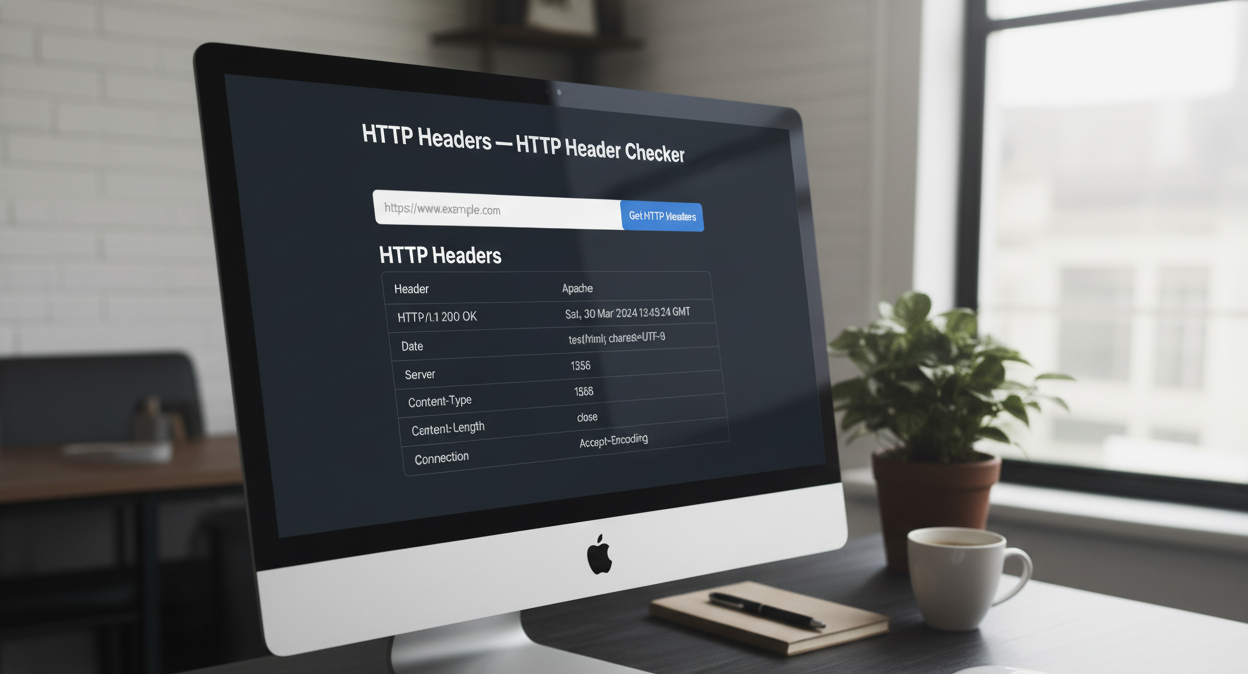
September 17, 2025 | blog
Get HTTP Headers — HTTP Header Checker
Get HTTP Headers is a fast, reliable online utility that retrieves and displays the HTTP request and response headers for any URL. Whether youre debugging an API, auditing security headers, checking cache settings, or verifying content type and server information, this tool gives you a clear, readable view of the exact HTTP headers exchanged between client and server with no installation required and no complicated setup.
Developers, SEOs, security analysts, and webmasters use this tool to quickly inspect headers such as Content-Type, Cache-Control, Set-Cookie, Strict-Transport-Security, Content-Security-Policy, Server, and X-Frame-Options. The output is presented in a structured format and includes both the request headers sent by the tool and the response headers returned by the server, making it easy to spot misconfigurations and opportunities for optimization.
How it works
Enter a valid URL (including http:// or https://) into the tool input field.
Choose options if available (follow redirects or not, show request headers, custom user-agent).
Click Inspect (or Get Headers).
The tool sends an HTTP HEAD (or optionally GET) request to the target server and collects the response headers.
Results are displayed in a readable table or code block showing header names and values, along with response status, final URL after redirects, and any redirect chain.
Use the copy button to copy the raw headers, or export as text/JSON for reporting.
Key Features
Fast header inspection: Retrieve response and request headers instantly.
Follow Redirects or Not: Option to show redirect chain and final destination.
Show Request Headers: See the headers the tool uses (User-Agent, Accept, etc.).
Raw & Formatted views: Switch between human-friendly table and raw header text.
Export Options: Copy raw headers or download as .txt / .json.
Security header checks: Highlights common security headers (HSTS, CSP, X-Frame-Options).
CORS & Cookies: Inspect Access-Control-* and Set-Cookie values.
Status & Server Info: View HTTP status codes and server identification headers.
No signup required: Use instantly without an account.
Privacy conscious: Temporary requests only no permanent storage of submitted URLs or header data.
Benefits
Quick debugging: Find missing or misconfigured headers (CSP, caching, content type) in seconds.
SEO insights: Verify Cache-Control, Content-Type, and Link headers to improve indexing behavior.
Security verification: Confirm presence of security best-practice headers and spot potential vulnerabilities.
Integration-friendly: Export header data to include in bug reports, audits, or documentation.
Educational: Great for beginners to learn how HTTP headers affect browser behavior and performance.
Suggested Use Cases
Confirm that your production site sends HSTS and CSP headers.
Verify API endpoints return correct Content-Type and CORS headers.
Check redirect chains after migrating domains.
Inspect cookies and attributes (Secure, HttpOnly, SameSite).
Validate caching rules for static assets (images, CSS, JS).
Try our Get HTTP Headers tool now enter a URL and inspect headers instantly. No signup required.
Recent Posts
October 6, 2025 | blog
Email Validator: Ensure ...
In todays digital age, your ability to reliably reach your audience hinges on one simple thing: valid email addresses. Sending to invalid or mistyped ...
Read MoreOctober 6, 2025 | blog
What Is a JSON Beautifie...
Working with JSON files can sometimes feel overwhelming, especially when the data is all packed into one long line. That as where a JSON Beautifier co...
Read More

 Log In
Log In

